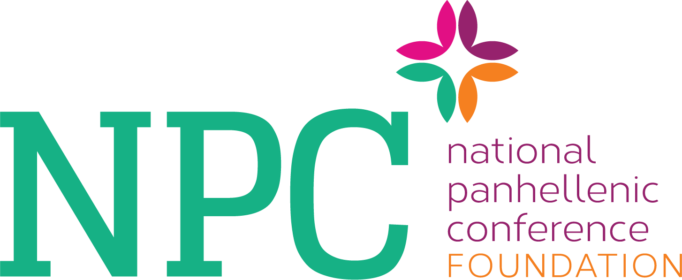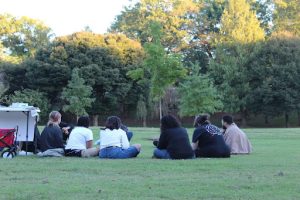Racism remains persistent in Greek Life
Most Panhellenic sororites continue to appropriate hand signs.
January 13, 2022
The sororities on Wake Forest’s campus and across the nation often distinguish themselves with hand signs, a practice that has been popularized across the National Panhellenic Conference (NPC) member organizations over the past 15 years. Members are encouraged to “throw what they know,” whether that be the Delta Delta Delta triangle or the Alpha Delta Pi diamond.
What many sorority members don’t know, however, is that the practice of hand signs originated with the National Pan-hellenic Council (NPHC), which is composed of nine historically-Black fraternities and sororities.
The NPHC was established in 1929, when Black men and women were barred from joining NPC and Interfraternity Council (IFC) organizations, and founded on the intention of nondiscrimination on the basis of race or religion. Hand signs and calls are a longstanding part of NPHC tradition; they can be traced back to the 1970s and became prevalent in the 1980s.
Calls are audible sounds that members of NPHC organizations make to grab the attention of other members and are also used as a form of greeting or promotion. Having sounds that are unique to a group or organization is embedded in both African and African-American tradition, tracing back to the Congo and Angola tribes as well as enslaved persons.
Hand signs are often used to accompany or substitute for calls and are frequently displayed when posing for photographs. While hand signs seem ubiquitous among NPC sororities, they didn’t come into popular use until 2006.
Unlike in NPHC organizations, hand signs are not an official practice or part of ritual in NPC organizations. They do not hold the same cultural significance as they do in NPHC organizations and were widely adopted without crediting their NPHC origins.
Only recently have Greek organizations started to recognize the problematic nature of these hand signs. In 2020, Phi Mu nationals announced that they would no longer be posting photos displaying their quatrefoil hand sign, and encouraged their members to follow suit. They cited “throwing what you know” as a form of cultural appropriation.
In October 2021, Kappa Alpha Theta — a sorority that has a chapter on Wake Forest’s campus — announced a similar intention to eliminate the use of hand signs. They wrote that their past posts using hand signs would remain, stating that learning from past mistakes requires acknowledgment rather than erasure.
However, racism and appropriation in sororities go far beyond hand signs. While recognizing where these hand signs come from and acknowledging the meaning they hold to NPHC organizations is a start, more meaningful steps can — and should — be taken to combat racism in Greek Life.
Black indigenous people of color (BIPOC) in NPC organizations often experience microaggressions, are stereotyped and are given fewer opportunities to take advantage of the networking system built into Greek Life. In recent years, sororities across the country have faced backlash for racist antics, parties and membership selection, including incidents of blackface, dressing in racially inappropriate costumes and allegations of not giving bids to BIPOC women.
While the NPC and many of its member organizations released statements pledging to address racism following the Black Lives Matter (BLM) protests of 2020, BIPOC sorority alumni have said that these statements rang hollow (Buzzfeed).
Combatting racism in Greek Life means systemic change — getting rid of the legacy and recommendation systems that favor wealthy, white women, appointing BIPOC women to leadership positions, including positions meant to promote Diversity, Equity and Inclusion (DEI) and holding racist members and actions accountable in all NPC organizations.
Promises to no longer use hand signs mean little if no further action is being taken. It is my hope that sorority members across Wake Forest and beyond not only recognize and consider the significance that hand signs hold to NPHC organizations before using them themselves, but also the deeper racism that runs through the system of Greek Life. Making the NPC a more inclusive space should not be a burden that falls on the shoulders of BIPOC members and alumni, but an achievement that all members are actively committed to fulfilling.













